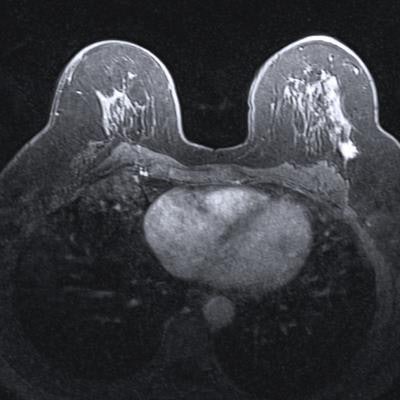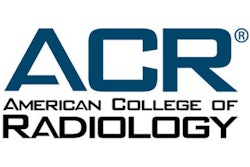
Guidelines the American College of Radiology (ACR) released in 2018 increased by 15-fold follow-up breast MRI eligibility among women with a previous history of breast cancer, a study published December 11 in the Journal of the American College of Radiology has found.
The results bode well for women who may be at higher risk for breast cancer recurrence, according to a team led by Jordan Lieberenz of Rush University Cancer Center in Chicago.
"Pre-2018 guidelines would have recommended supplemental breast MRI for only the 4% of breast cancer patients who carry a pathogenic germline mutation and still have breast tissue that requires screening breast imaging," the group wrote. "In contrast, the 2018 guidelines would recommend supplemental breast MRI for 61% of patients with a previous history of breast cancer."
Women with a personal history of breast cancer who have not had mastectomy are tracked for recurrence via breast imaging and clinical exam, the group explained, and this type of follow-up has evolved over the years as breast imaging technology and risk stratification methods have developed. In 2018, the ACR released an expanded recommendation for breast cancer screening in women at high-risk for the disease with a personal history of it to include the following factors: carrying a hereditary cancer gene mutation, having dense tissue, or being diagnosed with breast cancer before the age of 50. (Previous guidance had recommended only that supplemental MRI be used in women with a personal history of breast cancer and a hereditary gene mutation, the team noted.)
So what effect did this recommendation update have on expanding the pool of women eligible for follow-up breast MRI? Lieberenz's group explored the question via a study that included data taken from the electronic health records of 2,950 patients who reported personal history of breast cancer and underwent screening or diagnostic mammography between July 2020 and July 2021. The group tracked the women's age at time of breast cancer diagnosis and their hereditary cancer gene mutation status.
Of the 2,950 women with a personal history of breast cancer, 1,805 (61%) met the criteria for supplemental breast MRI according to the ACR's 2018 guidelines, compared with 3.6% of women who met the criteria using the pre-2018 recommendation -- a 15-fold increase in eligibility.
An added benefit? This change in recommendation had an effect of expanding eligibility among women of color -- who have tended to be vulnerable to missed or delayed screening, the team found.
| Eligibility for MRI-follow up among women with a personal history of breast cancer by race and by ACR guideline | ||
| Racial category | Eligibility pre-2018 | Eligibility after 2018 |
| White | 55% | 64% |
| Black | 29% | 52% |
| Latinx | 10% | 64% |
| Asian | 3% | 78% |
| Other | 2% | 64% |
The study underscores the need for developing effective breast MRI follow-up protocols in this particular patient population, according to the authors.
"Given the major increase from 3.6% to 61% of patients recommended supplemental breast MRI demonstrated in our study, significant attention should be given to implementation efforts," they wrote. "This includes consideration for how to identify eligible patients, managing MRI capacity, patient and provider education, and payor coverage."



















